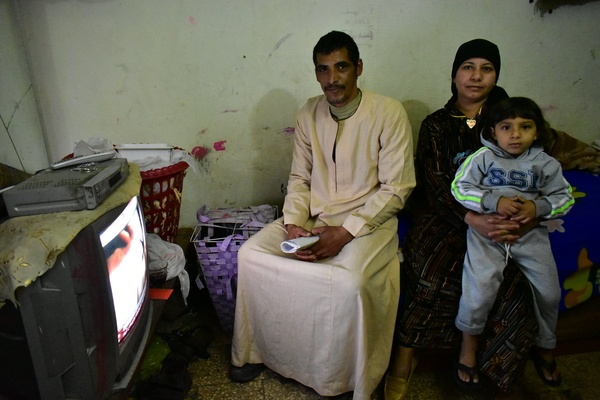
As Thanksgiving approaches in the U.S., ‘world’s loneliest Christians’ keep the faith despite isolation, suffering
ISOLATED CHRISTIANS IN MIDDLE EAST PLEAD ‘DON’T LEAVE US ALONE:’ Isolated Christians in the Middle East and North Africa are turning to virtually “uncensorable” visual and digital technology to help keep their faith alive in an increasingly lonely environment for believers, says Middle East-based media ministry SAT-7 (www.sat7usa.org).
NEWS PROVIDED BY: SAT-7
EASTON, Md., /Saved News/ — Isolated Christians in the Middle East and North Africa are turning to virtually “uncensorable” visual and digital technology to help keep their faith alive in an increasingly lonely environment for believers.
In some countries in the region — where only 3% of the population is Christian — believers can be banned from going to church, live in fear for their lives, and sometimes don’t have even one other believer to talk with.
“These are the world’s loneliest Christians,” said Rex Rogers, president of SAT-7 USA (www.sat7usa.org), a media ministry that broadcasts faith-based programs via satellite and streams video online in local languages across the region 24/7. “They’re crying out: ‘Don’t leave us alone.'”
The Middle East-based broadcaster reaches an estimated 25 million viewers in their homes and on their phones — including isolated believers in places such as Afghanistan, Iran, Syria, Turkey, and Iraq — and interacts with them via social media and live chat.
‘Hanging On Every Word’
In Morocco, Rita El-Mounayer — SAT-7’s Middle East-born CEO — found a small, isolated group of believers glued to the ministry’s Arabic-language satellite television broadcast. “They were hanging on every word, with pen and paper in hand to take notes and jot down the words of the worship songs,” she said.
For thousands in this volatile region, being a follower of Christ is difficult and often dangerous — a journey many walk alone.
“It’s not easy to be a Christian in a country where everyone is a (non-Christian) by default,” said SAT-7 ARABIC presenter Samia Kessai in Algeria, where churches have been closed by the government during the pandemic and believers fear they might never re-open. “Many believers here feel lost,” she said.
“My five-year-old son asks me why we’re not praying in the church. He doesn’t understand.”
The network is a “lifeline” for believers who “have nowhere to go to seek fellowship,” Kessai said. Nabila — full name withheld — says his brothers threatened to kill him when they found out he’d become a Christian. Like many others, he watches SAT-7 — his only source of Christian fellowship — in secret.
‘I Really Am Loved’
In Iran, Elmira — full name withheld — was forced to marry at age 11 and sold as a prostitute to fund her husband’s drug habit. By age 15, she had two children. “I felt like I was nothing,” she said. When Elmira came across SAT-7’s local channel, she suddenly saw she wasn’t alone. “I heard how I really am loved… how God could help me. That changed everything.”
While Christianity is spreading faster in Iran than anywhere else in the world, many believers there — like Elmira — have to practice their faith in secret, tuning into satellite broadcasts that governments can’t easily jam, and streaming on-demand Christian programs on their phones and mobile devices.
Children in Iran are even praying for children in Afghanistan, where the Taliban has forced Christians into hiding and Christian girls live in terror of being abducted as child brides and sex slaves. Sargez, a viewer in Afghanistan, recently told the SAT-7 PARS Farsi-language channel: “I’ve become captivated by the love in Christianity.”
About SAT-7
Launched in 1996, SAT-7 (www.sat7usa.org) — with its international headquarters in Cyprus — broadcasts Christian and educational satellite television and online programs to an estimated 25 million people in the Middle East and North Africa. Its mission is to make the gospel available to everyone, and support the church in its life, work and witness for Jesus Christ. SAT-7 broadcasts 24/7 in Arabic, Farsi (Persian), Dari, and Turkish, using multiple satellite channels and online services.
SOURCE SAT-7
CONTACT: Matti Stevenson, 719-360-0586,
ms********@in********************.com




















